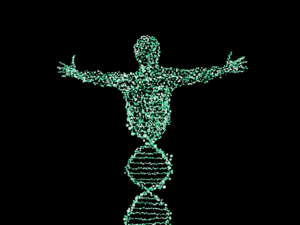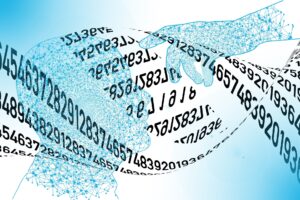Epigenetics Decoded: How Your Choices Shape Your Genes (And Future Generations)
- Posted by admin
- Date January 31, 2025
Introduction

You’ve heard the phrase “it’s in your DNA,” but what if your genes aren’t your biological destiny? Enter epigenetics—a revolutionary field revealing how lifestyle, environment, and even trauma can alter gene expression without changing your DNA sequence. Let’s dive deep into this topic, answering burning questions like:
How do environmental factors “talk” to your genes?
Can your diet or stress levels affect your grandchildren?
Why do identical twins develop different diseases?
What Is Epigenetics? Breaking Down the Basics
Epigenetics (“above genetics”) involves chemical modifications that regulate gene activity. Two key mechanisms:
DNA Methylation: A methyl group attaches to DNA, usually silencing genes. Example: Smoking causes methylation of tumor-suppressor genes, raising cancer risk.
Histone Modification: Proteins called histones package DNA. Acetylation (adding acetyl groups) loosens histones, making genes accessible for transcription.
Debunking Myths
Myth: “Epigenetic changes are permanent.”
Truth: Many are reversible! Exercise and a healthy diet can demethylate harmful genes.
Myth: “Only negative habits matter.”
Truth: Positive choices, like meditation, can boost beneficial gene expression.
Real-World Implications for Students
Mental Health: Childhood trauma can methylate stress-response genes (e.g., FKBP5), increasing depression risk.
Cancer: Hypermethylation of BRCA1 (a tumor suppressor) is linked to breast cancer.
Aging: Telomere shortening is influenced by epigenetic factors like chronic stress.

Case Study: The Dutch Hunger Winter
During WWII, a famine in the Netherlands caused pregnant women to give birth to children with higher obesity rates. Decades later, their grandchildren also showed metabolic issues—proof of transgenerational epigenetic inheritance.
How to Study Epigenetics Effectively
Visualize Processes: Use tools like the ENCODE Project to explore gene regulation maps.
Link to Current Events: Research on how COVID-19 might affect epigenetic markers.
Labs & Simulations: Try virtual labs (e.g., LabXchange) to practice identifying methylation patterns.
Conclusion
Epigenetics bridges nature and nurture, proving your choices matter more than you think. Ready to rewrite your genetic story?
Tag:Aging, CRISPR, DNA, DNA editing, epigenetics, gene editing, Genes, genetics, genetics myths, Inheritance
You may also like
Introduction Did you know 95% of the universe is invisible? Dark matter and dark energy dominate the cosmos, yet we’ve never directly detected them. Let’s explore the evidence, theories, and why these enigmas matter for astrophysics students. Dark Matter: The …
Introduction The Riemann Hypothesis (RH)—unsolved for 160+ years—is one of the seven Millennium Prize Problems. But what does it actually claim, and why is it so important? Let’s explore primes, zeros, and the math that could revolutionize cryptography. Primes, Zeros, and the …
Quantum Entanglement: From Einstein’s Skepticism to Quantum Computing Breakthroughs
Introduction Quantum entanglement—the phenomenon Einstein called “spooky action at a distance”—is now the cornerstone of quantum technologies. But how does it actually work, and why should you care? Let’s untangle science step by step. The Science of Spookiness Entanglement Defined: When two …
